Actionable research
Main thematic areas of research
Protection International researches best practices in the protection of human rights defenders (HRDs):
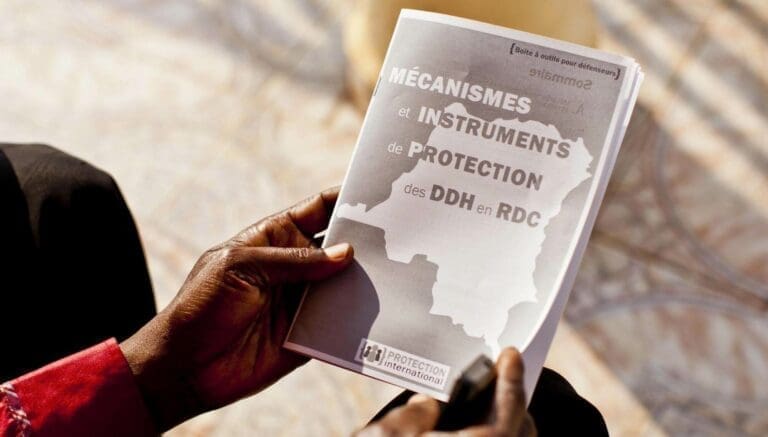
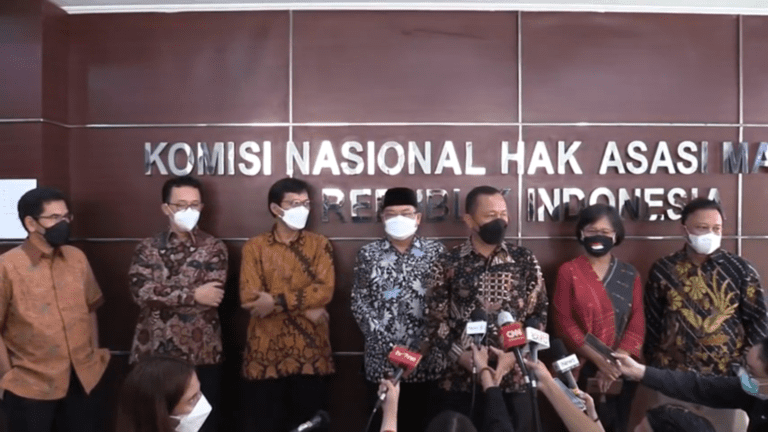
1. National public policies for HRDs protection:
- Providing support to HRDs and CSOs working on the topic
- Influencing policy-making by duty-bearing authorities and key stakeholders
2. Criminalisation of HRDs and civil society organisations (CSOs):
- Developing a thorough understanding of criminalisation and related phenomena by compiling and systematising good practice (e.g. counterstrategies) to fight and prevent this threat.
- How community-based defenders operating in remote rural areas organise themselves and act collectively to defend their civil and political rights, as well as economic social and cultural rights – including the defence of their ancestral territories.
- The effectiveness of national public policies for the protection of defenders.
- The impact criminalisation and the shrinking of spaces have on HRDs and civil society organisations, and the strategies that can be developed to counter such campaigns aimed at silencing the social struggles.
3. Protection networks and collective protection:
Fostering experience sharing (internally and externally) of protection network methodology of community-based defenders operating in remote rural areas, who organise themselves and act collectively to defend their civil and political rights, as well as economic social and cultural rights – including the defense of their ancestral territories.
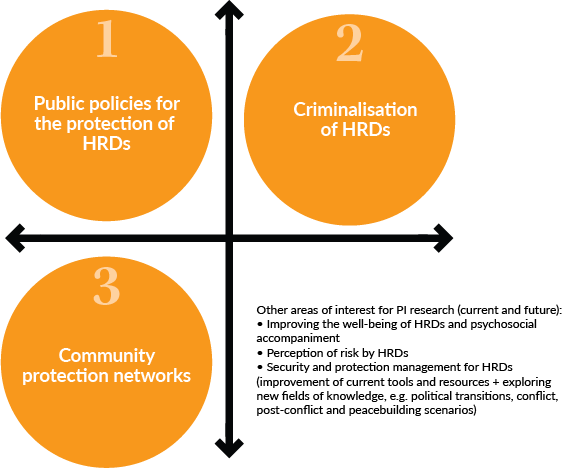
Our Policy, Research and Training Unit based in Brussels and with the support of the team of senior advisors and various PI offices, captures these practices, and turn our research findings into protection manuals, defenders tools, policy makers tools, our online training, and other formats that make the lessons learned available to interested parties.
Goals of our research efforts:
- Develop a thorough understanding of the situations and contexts where HRDs and civil society organisations are at risk.
- Produce research outcomes that adequately inform the practice and protection of HRDs.
Capacity Building
Protection International’s capacity building programme aims to ensure that human rights defenders, civil society organisations (CSOs) and communities are able to continue with their human rights activism in a safe and sustainable manner, even when faced by threats and aggressions.
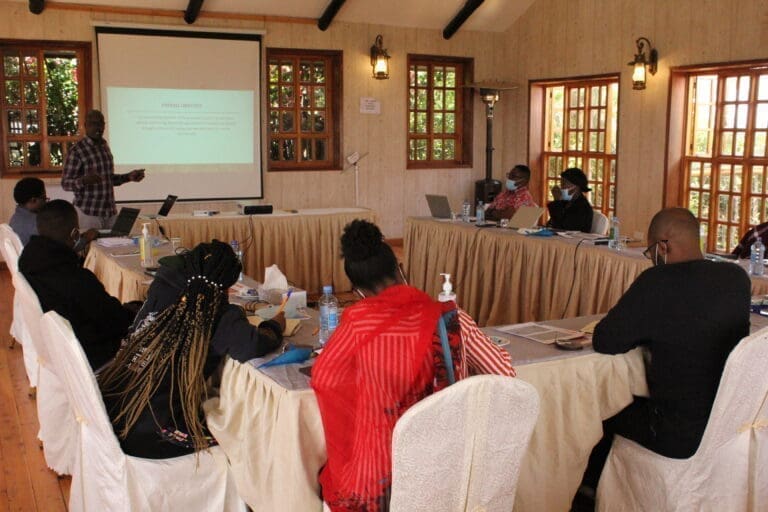
These protection capacities involve the power of HRDs to make decisions when they are confronted with different alternatives, and the power to take these decisions in safety.
We contribute toward empowering HRDs and increasing the capacity of their CSOs and communities to effectively manage their own protection and security. PI staff support HRDs with capacity-building processes, which cover protection from a comprehensive perspective – i.e. physical, data management and ICT security, as well as psychosocial support.
We equally assist CSOs and communities to devise collective and preventive risk management strategies, including the setup of early-warning systems, building networks of support, and bolstering their advocacy and communication skills to claim their right to defend human rights and push back criminalisation.
PI links grassroots HRDs with duty-bearing authorities and key stakeholders that can support them. At the same time we engage with government and state authorities at different levels (local, regional and national), international human rights protection regimes (regional and global) and other key stakeholders (e.g. EU, diplomatic missions, intergovernmental organisations, etc.) to improve their knowledge and awareness of HRD protection issues.
Network & Alliance Building
Our membership in numerous coalitions and networks aligns with our protection network approach, where we can build new alliances and strengthens older ones. Our participation in these spaces also importantly reinforces our goal to advance the Right to Defend Human Rights (RDHR) in the countries where PI operates.
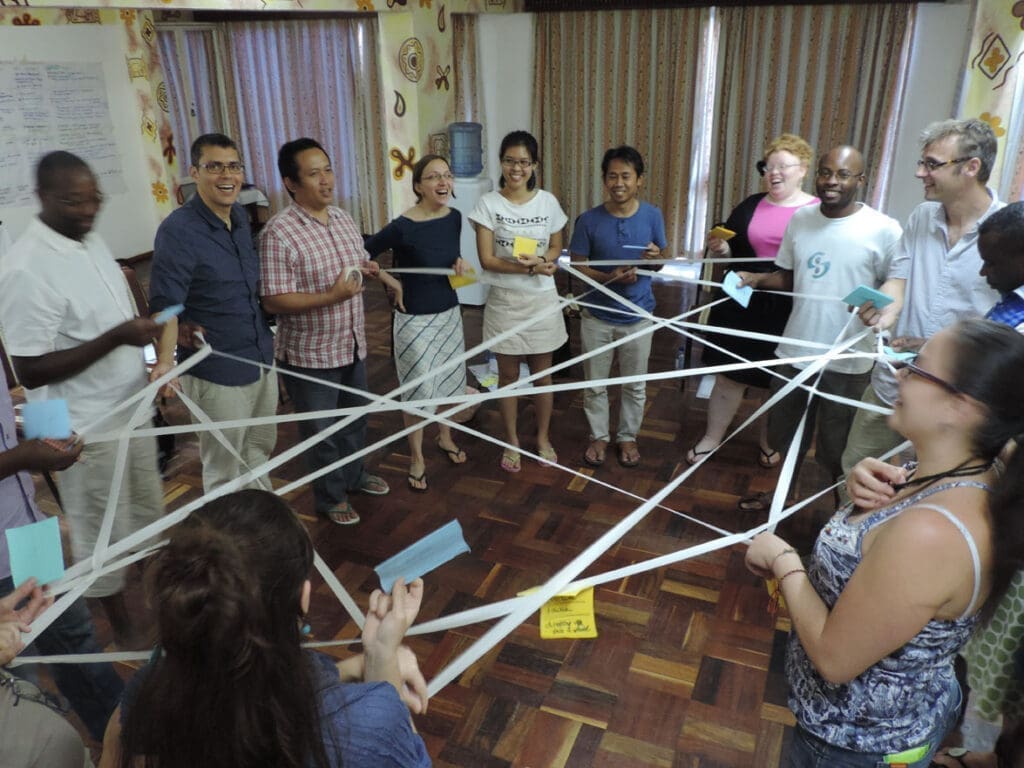
Human Rights and Democracy Network (HRDN)
Protection International is a member of the Human Rights and Democracy Network (HRDN) an informal grouping of NGOs operating at the EU-level in the broader areas of human rights, democracy and conflict prevention. HRDN’s vision is that human rights and democracy are placed at the heart of the EU’s internal and external policy agenda. This vision should manifest itself in an EU which effectively protects human rights at home and is a force for positive change in the world. In pursuit of this vision, the network aims to influence EU and EU Member States’ human rights policies and the programming of their funding instruments in order to promote democracy, human rights and sustainable peace.
European Network for Central Africa (EurAc)
Protection International is a member of the European Network for Central Africa (EurAc) which works on and in the Great Lakes region. EurAc supports civil society organisations in Burundi, the Democratic Republic of Congo and Rwanda in their efforts to promote peace, the defense of human rights and development. Its mission is to carry out advocacy work towards the European Union to ensure a long, coherent and sustainable engagement by the EU and its member states, integrated to a regional approach, in order to help the Great Lakes region build a better future.
Protect Defenders
Protection International is a partner of Protect Defenders, the European Union Human Rights Defenders mechanism, established to protect defenders at high risk and facing the most difficult situations worldwide. This consortium of 12 international and regional human rights organisations implement the European Human Rights Mechanism.
Zero Tolerance Initiative
As a member of the Zero Tolerance Initiative, Protection International advocates within a global coalition of indigenous peoples, HRD collectives and international NGOs for States, businesses and investors to end reprisals against environmental human rights defenders in global supply chains.
Coalition for HRDs in Development
The ALLIED coalition works to build protection skills among defenders, strengthen government and business safeguards for defenders, and protect civil society actors who are addressing root causes of threats and attacks on defenders.
The International Office for Human Rights Action on Colombia (OIDHACO)
Oidhaco is an advocacy network dedicated exclusively to working on human rights and peace in Colombia; it focuses its activities on the European Union, its member- and other European states and the United Nations system.
Advocacy
Protection International’s overarching goal through advocacy and campaigning is to advance the Right to Defend Human Rights (RDHR) in countries and regions where we operate. Our advocacy is grassroots, collaborative and human rights based by nature, with a gender-sensitive and intersectional approach.
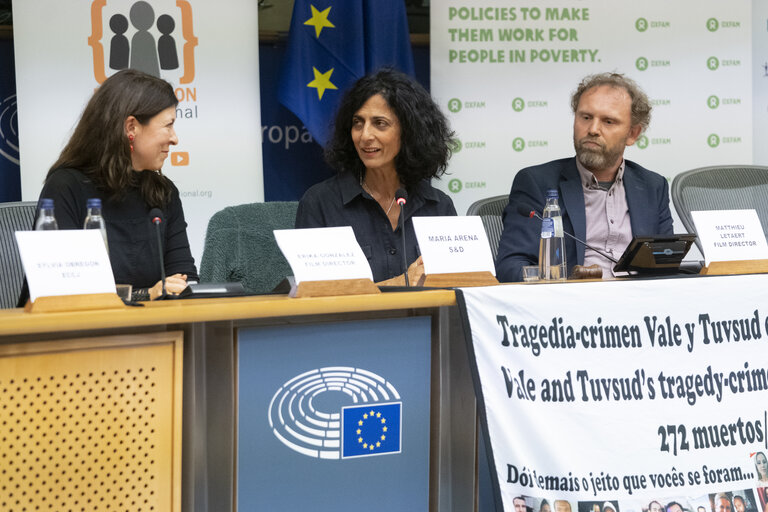
The three priority thematic areas for PI’s advocacy work for the period 2020 – 2023 are as follows:
- Adoption of HRD protection laws & public policies or the repeal of regressive laws and policies;
- Violations to the RDHR (stigmatisation, criminalisation and judicial harassment and all forms of aggression of HRDs);
- Protection networks & collective approach to protection.
Through our advocacy actions, we support human rights defenders to bring their cases to the local and national authorities, as well as onto the international arena, such as the United Nations, the European Union, the African Commission on Human and People’s Rights, the Association of Southeast Asian Nations and the Inter-American Commission on Human Rights.
Overarching definition of advocacy for PI:
Advocacy is the deliberate process based on demonstrated evidence, to directly and indirectly influence and engage duty-bearing authorities and other relevant stakeholders to implement an/or support policies and actions that contribute to the fulfillment of the Right to Defend Human Rights.
Advocacy is intenderd to change policies, practices, systems, structures, decisions, as well as narratives, attitudes, and opinions about policy – specifically, those of duty-bearing authorities – and achieve a particular policy or attitudinal change.
Our advocacy work is strengthened through a networks approach. We are a member of numerous human rights and environmental rights coalitions and networks.
Campaigns
When we wish to reach a wider, public audience with our messages and call for positive advances on the right to defend human rights, we create (or join) campaigns. As a combination of our advocacy and outreach efforts, and in line with our global strategy, through campaigns we aim to raise awareness on the situation of human rights defenders (HRDs), as well as to mobilise broader public support, and to influence key actors who can affect the change we wish to see.
Here are some of our past campaigns:
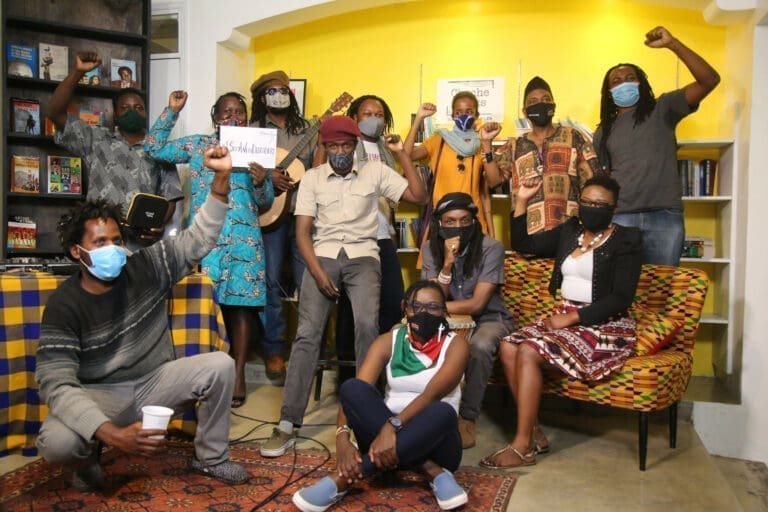
“#StayWithDefenders in times of COVID-19” our Global Campaign on the Right to Defend Human Rights during COVID-19. With this campaign, we wanted to call for international solidarity and recognition to human rights defenders, be they individuals or collectives, under such times of crisis and uncertainty. The campaign came to a creative close with our Human Rights Defenders Poetry Challenge, a joint effort between PI, ProtectDefenders.eu and the Centre for Applied Human Rights of the University of York. We received a total of 438 poems coming from artists and activists representing over 58 countries around the world–from Cameroon to Cuba, from Ecuador to Eswatini, from Peru to the Philippines. The fruits of this campaign can be seen in Human Rights Defenders Poetry Book.
Communities are HRDs! Our global campaign in the year that marked the 20th Anniversary of the UN Declaration on HRDs, aimed to contribute to a changed narrative on human rights defenders, towards a greater recognition of the collective aspect of their work and achievements. Activities included sending letters to all major human rights awards calling for HRD collectives and organisations to be awarded prizes; hosting an international round-table on what a collective approach means in the protection of HRDs; and calling for greater recognition of women HRDs. #CommunitiesareHRDs
“Her Life, Her Diary – Side by Side WHRDs 2018 – Diary of Hope and Dreams” photo exhibition was launched by Protection International in collaboration with the Canadian Embassy in Bangkok to draw attention to women HRDs in Thailand, many of whom are victims of systematic violence and discrimination because of their identities and unwavering struggles for rights, equality and justice. #SidebySideWHRDsDiary2018
The Stand4HRDs campaign aims to bring attention to individual human rights defenders and communities, pressing the EU to work on a number of areas: from how to identify whether HRDs are being arbitrarily harassed, to better public diplomacy on cases of human rights defenders at risk that need the EU’s immediate attention. #Stand4HRDs
For Those Who Died Trying presents the photographs of 37 murdered or abducted human rights defenders in Thailand. This project by Protection International and photographer Luke Duggleby, looks to remember those who died defending human rights and protecting the environment by placing a portrait of the human rights defender, when possible, at the exact place he or she was murdered or abducted. Canadian musician Frank Horvat added to the project with his string-quartet album, where each movement is an elegy to the victims featured in each photo.
Voices of Defenders in DRC denounces the shrinking space for human rights defenders in the Democratic Republic of the Congo who struggle in a context of rising political unrest. Protection International launched this campaign on the sidelines of the unofficial visit of the then UN Special Rapporteur on the situation of human rights defenders, Michel Forst, to the Democratic Republic of the Congo on 12-18 February 2017 following PI’s invitation. As part of this multimedia campaign Protection International supported the exhibition “Unsung”, released an exclusive interview Dr. Denis Mukwege a Congolese gynecologist and human rights defender and promoted the guide “10 good security practices for human rights defenders” providing physical and digital security tips to HRDs.
Ad-hoc Support (Services)
Our work alongside communities of human rights defenders (HRDs) does not stop in the countries where we have a permanent presence. With our consultancy services, we are able to accompany and support HRDs around the globe in providing expertise on security and protection management strategies to continue exercising their right to defend human rights.
Our tailored onsite and online capacity building trainings provide support to communities, organisations and individual HRDs on security and protection strategies where it is most needed.
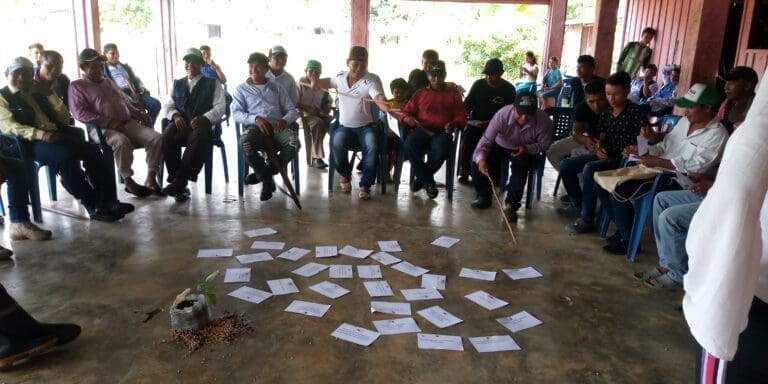
What
In countries where PI has no permanent presence, PI offers tailored onsite and online capacity building support on security management and protection. PI’s protection experts, support communities, organisations and individual HRDs in assessing their risks in their specific contexts. They work towards developing and implementing comprehensive security plans and protocols that address their physical and digital security as well as important aspects of self-care and well-being. The support is shaped by a thorough assessment prior to the workshop, a comprehensive analysis and recommended course of action afterwards. Going beyond one-off sessions, PI’s capacity building approach builds on follow up support – both onsite and online – accompanying defenders in weaving security management into all aspects of their work at the individual, organisational and community levels. PI employs a mix of workshops, consultations and coaching sessions with participative learning methods and the possibility of combining face-to-face and remote support.
Who
PI’s protection experts have longstanding, comprehensive experience on protection and security management that includes aspects of physical protection, well-being and digital security. They are professionals with a solid understanding of organisational dynamics, profound knowledge on capacity building approaches and HRDs’ needs. Besides its country presence in their regional offices, PI has practical experience working with HRDs in highly volatile environments across the world e.g. Somalia, Chad, Gabon, Cameroon, Nigeria, Sierra Leone, Liberia, Pakistan, Palestine, Bolivia, Mexico, Colombia, and El Salvador, Peru, Nepal, Sri Lanka. In recent years, PI has acquired further experience in Europe in countries such as Czech Republic, Ukraine, Spain and Italy. Past and current partners include a variety of local and international non-profit organisations such as, Amnesty International, Open Society Foundation, Bread for the World, Peace Brigades International, Goldman Prize, among others.
PI’s protection experts are highly sensitive to local contexts and work along HRDs to build on their existing security and protection practices. They are able to carry out activities in several languages such as English, French, Spanish and Portuguese. They have long-standing experience with a variety of HRDs working on different thematic issues such as freedom of speech, land rights, environmental issues, women’s rights, sexual orientation and gender identity/expression, sexual and reproductive rights, accountability and good governance. Protection experts are also experienced in assessing technical bodies on public policies (mechanism for the protection of HRDs e.g. Mexico, Honduras, Peru) and in training state authorities (police, judiciary and civil servants) in HRD protection.
How
PI has the capacity to rapidly respond to HRDs in need of flexible and continuous support relying on existing local structures rather than the creation of new ones. Once PI is contacted, we develop a tailored intervention plan with the partner based on their needs. Terms of Reference and a budget proposal incorporating follow up support are shared with the funding partner. Throughout its accompaniment to HRDs, PI adapts its support to changing needs and documents its work to contribute to organisational learning and development of new approaches.
For further information regarding these tailored security management support, please out the form on our Contact page, and select “Ad-hoc Support” under the “topic” section.
